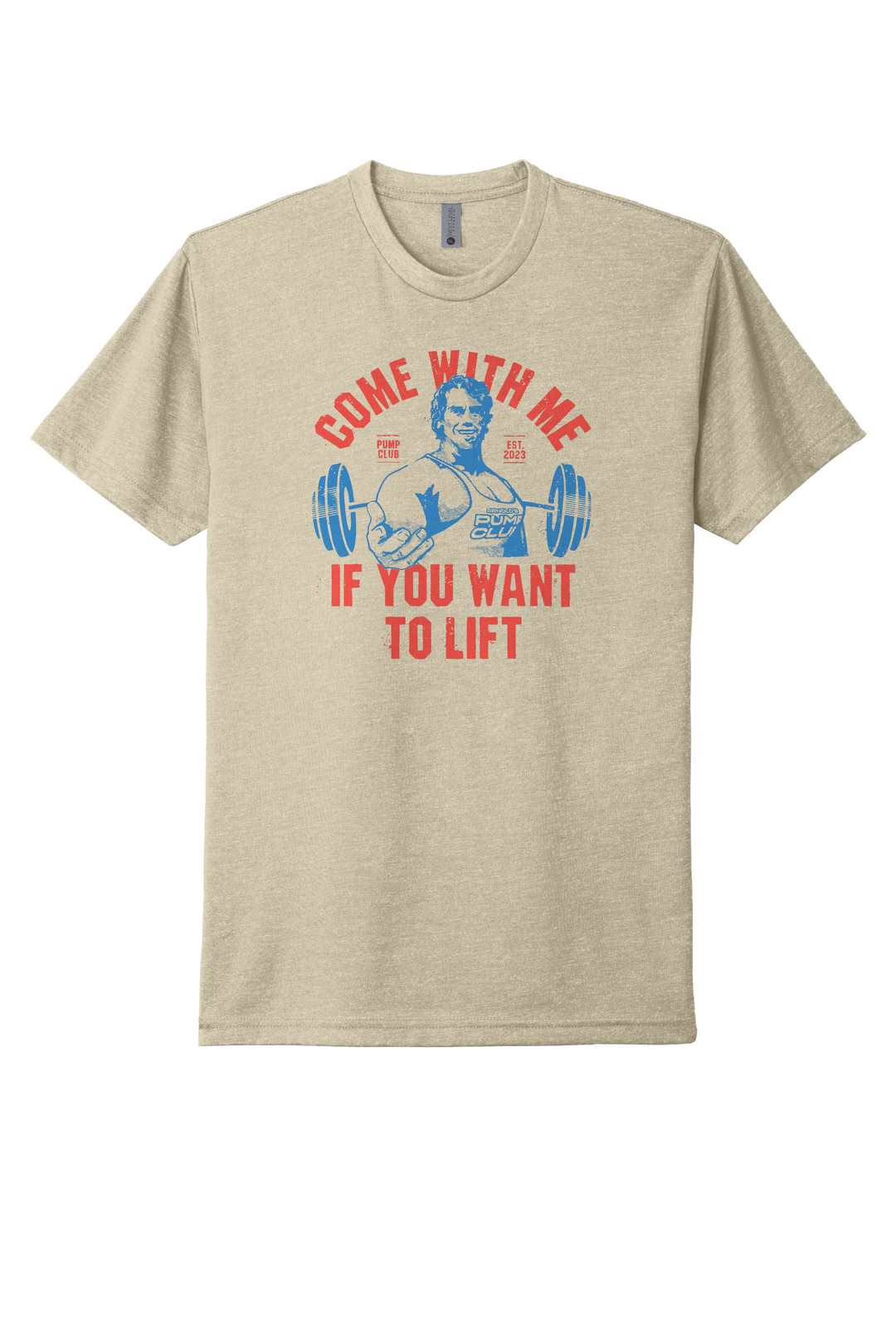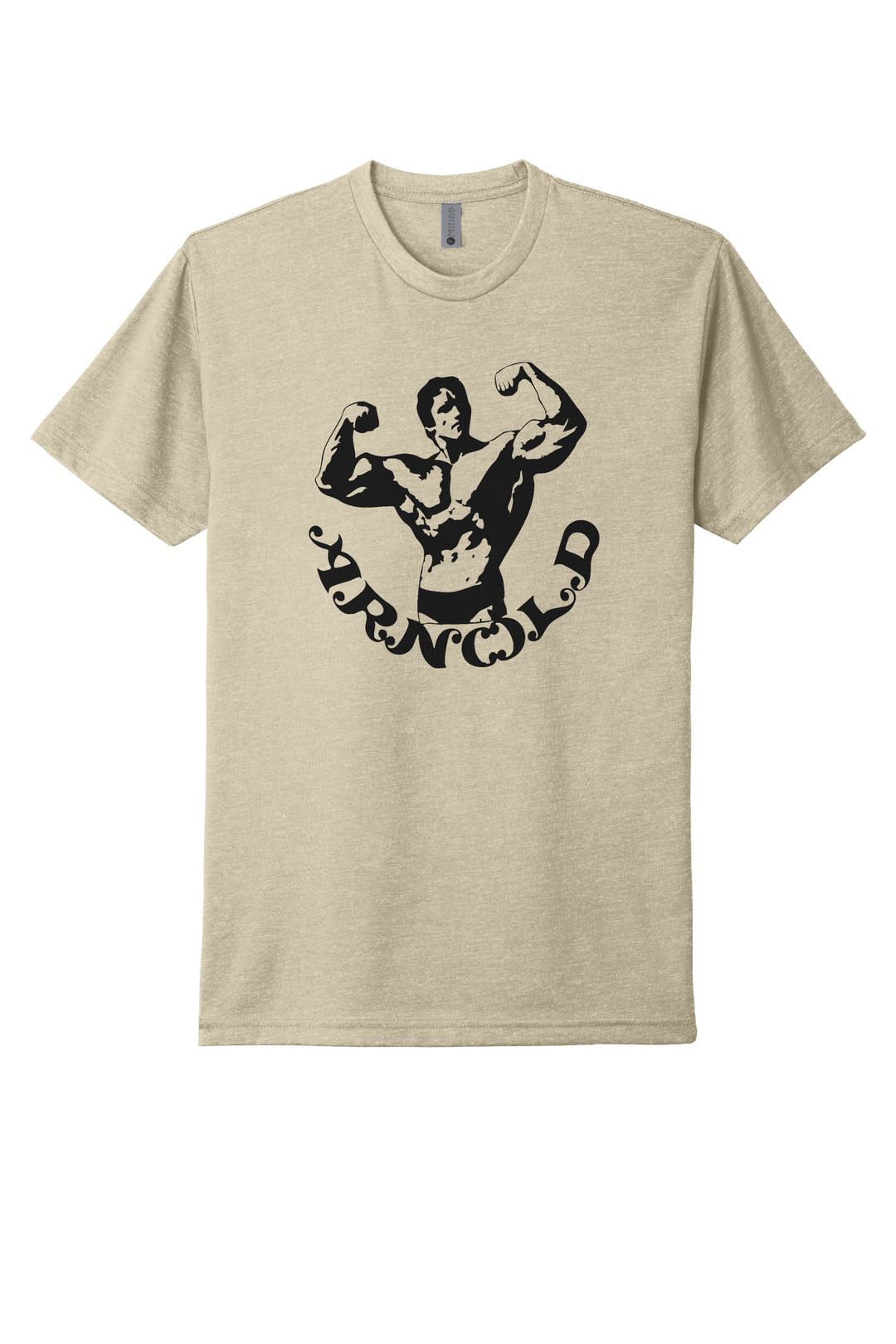Welcome to the positive corner of the internet. Every weekday, we help you make sense of the complex world of wellness by analyzing the headlines, simplifying the latest research, and providing quick tips designed to help you stay healthier in under 5 minutes. If you were forwarded this message, you can get the free daily email here.
Today’s Health Upgrade
“It’s not for me”
Fact or fiction: late-night meals and fat loss
Let’s talk about your feet
The lies we tell
Arnold’s Podcast
Want more stories from Arnold? Every day, Arnold’s Pump Club Podcast opens with a story, perspective, and wisdom from Arnold that you won’t find in the newsletter. And, you’ll hear a recap of the day’s items. You can subscribe on Apple, Spotify, Google, or wherever you listen to podcasts.
Arnold’s Corner
“It’s Not For Me”
A little while ago, we asked the members of the Pump Club app why they didn’t sign up sooner.
One of the most common answers was, “I didn’t think it was for me.”
We want to be 100% clear: We did not build the Pump Club app just to help the fit get fitter.
We have some of the best coaches and programs, and we have helped people who could lift 400 pounds increase their max to more than 600 pounds.
But, we built The Pump app for absolutely everyone. Our goal is showing that training is for you, no matter where you are starting from.
That’s part of the reason we wanted this birthday app sale to give you a discount and a second membership for a friend for free. Because if you’ve put off your health, today is the day to start, and we know it’s easier with a friend.
Whether you want to get fit for the first time, restart your health journey, or chase your potential — getting healthier is important to everyone and an experience that is more enjoyable with friends.
The Starting from Scratch plan is designed for anyone who is just starting out trying to make fitness a habit. Maybe you’ve failed because your workouts were too extreme in the past. Maybe you’ve failed because you didn’t have enough support. Maybe you failed because you changed programs too often and always looked for the next thing.
We don’t throw you into the deep end. Remember the story I shared on Monday about starting Fortune Feimster with lighter weights so she would fall in love with fitness? That’s the goal of our app.
If you haven’t done a squat in years, we don’t just ask you to do a squat right away. We ask you to sit down into a chair and stand up, to remind yourself that you have been doing squats, even if you didn’t notice.
We want to empower you so that you don’t just start training; you make it a lifelong habit.
If you’ve been wondering if you belong in The Pump Club app and if it could help you, please take this as our promise: Yes, you do; and yes, it can.
If you get an annual membership this week through this link, you can select any friend to send annual membership — all for the discounted price of one — so you don’t have to take the journey alone.
See you in the Pump Club.
Fact Or Fiction
Should You Stop Eating After 8pm To Lose Weight?
The rule shows up in diet books, weight loss challenges, and even your aunt’s nightly routine: no food after 8 PM. The idea? Late-night eating leads to fat gain. But does science support the clock-based cut-off?
As much as people might claim it’s true, timing influences fat loss less than what and how much you eat.
Is there some research that shows late night eaters gain more weight? Yes, but the context matters. Late-night eaters also eat more calories overall, snack on more ultra-processed foods, and get less sleep — all factors that impact metabolism and appetite.
One study compared two identical meal plans, but in different windows: one group ate earlier, the other ate the same meals four hours later. The late eaters burned slightly fewer calories, had lower leptin (the “I’m full” hormone), and reported higher hunger.
But here’s the key: the differences weren’t significant, and weight gain only occurred if the late eating led to overeating.
So if you’re someone who snacks mindlessly in front of the TV at night, then yes — cutting off food after dinner might help. But if your calories, protein, and meal quality are in check, eating at 8, 9, or 10 pm won’t suddenly sabotage your progress.
The better rule? Because sleep consistency is so important to health and your hunger, “close your kitchen” about 2 hours before you sleep.
That way, you won’t mindlessly eat, and your late night meals are less likely to affect your sleep, which can lead to more hunger the following day.
Together With NOBULL
How Your Shoes Shape Your Squat
If your squats feel off, it might not be your mobility or your strength. It could be your shoes.
Researchers tested how different footwear affects squat performance. The results were clear: The right shoes can help you train your lower body more effectively.
Those who had shoes built for lifting had more knee flexion and depth, improved posture and alignment, and stronger muscle engagement, especially for experienced lifters.
You might not realize it, but your shoes can play an important role in creating more stability, which helps you generate force more efficiently and maintain better balance. A raised heel allows your knees to move forward more easily, so you stay balanced and keep tension in your legs—not your lower back.
That’s why we love the new NOBULL Energy Collection.
NOBULL shoes give you what you need in the gym: A stable heel, firm sole, built for dynamic movements, and a powerful design and explosive colors to match.
As an APC reader, use the code TAKE10 to get $10 off your order of $100 or more.
Adam’s Corner
The Lies We Tell About Others—And Ourselves
A few years ago, I was standing at the airport getting ready to board a flight when a man lowered his shoulder and bull-rushed his way through me. No eye contact. No apology. Just an attempted blindside sack without remorse or comment.
I felt my pulse spike.
What a jerk, I thought to myself. Who does that?
As I daydreamed about what I would say if he hadn’t fled so quickly I saw him again—at a gate next to mine — holding his daughter’s hand, tears on her face, dragging a doll and a backpack. The agent was closing the door and he was trying to get on.
Oh.
He wasn’t rude or a jerk. He was hurried, distracted, and maybe a little desperate and feeling guilty. Any parent knows the awful feeling of rushing a child faster than they can move. If you’ve been there, you know it’s not an experience you wish on someone.
And in an instant, I realized I had no idea what he was going through. I didn’t see his stress or fear. I just made a story up to fit what happened.
Psychologists have a name for this. It’s called the fundamental attribution error, and it’s a cognitive bias that influences our thoughts and behaviors.
It’s our tendency to over-attribute other people’s behavior to their personality or character, while giving ourselves a pass based on context or circumstance.
When someone else messes up, they’re lazy, unreliable, selfish.
But when we mess up? It’s because we didn’t sleep well, or the kids were sick, or work was stressful.
We blame their flaws and excuse our obstacles.
It’s not just a mental quirk. Because of the fundamental attribution error, we’re too hard on others. It’s a wedge between us and better relationships. It kills empathy. It fuels resentment.
But it’s not just about your perspective, understanding, and relationship with others. The bigger issue might be that we’re also too easy on ourselves.
Your bias to excuse your own behaviors could let you off the hook from becoming better, and creates excuses that become blind spots and crutches in your own development.
That’s the side of the fundamental attribution error that needs more attention.
Because we’re all playing the game called life. And that means many days can feel overwhelming. So when you fall short, you reach for a story that softens the blow:
“I’m just not a morning person.”
“I’m too busy to cook healthy.”
“I can’t work out—I’m too out of shape to start.”
“This week is crazy. I’ll start fresh Monday.”
And listen: some of our “excuses” are real and challenging. This is not an invitation to beat yourself up.
But there’s a line—and it’s blurry—between being kind to yourself and being dishonest.
Between giving yourself grace and giving yourself excuses.
Between needing support — but also needing a little tough love.
It’s something we discuss in the app: we believe empathy can destroy apathy. And, at the same time, you must increase awareness and accountability to create action and change.
When we constantly explain away our actions with context—but hold others accountable for theirs with judgment—we’re not only being unfair, we’re building a life where no one gets better.
Not the people we could’ve supported.
Not the version of ourselves we could’ve become.
Self-compassion is a must. You won’t improve by shaming yourself. And it’ll likely weaken your sense of self.
But honesty is a must, too.
Because if you’re not willing to own your actions—if you’re always a victim of circumstance—you’ll never see how much power you actually have.
And if you never assume the best in others, you might miss the chance to be the one bright moment in someone’s hard day. The one who saw them clearly, and chose kindness instead of contempt.
The truth is: everyone has a reason. And everyone has a choice. The question is—what do you want to reinforce?
The dad in the airport didn’t need a stranger to get angry. He needed someone to give him space.
And sometimes, you don’t need another excuse. You need to call yourself up to something higher. To realize that even in the hardest moments, life isn’t out to get you. It’s giving you a challenge that you were built to overcome.
So the next time someone shows up in a way that disappoints you, pause.
And the next time you show up in a way that disappoints yourself, pause and ask:
What story am I telling?
Is it helping me?
Is it helping anyone else?
Because when you stop assuming the worst in others, and stop pretending the best in yourself, something beautiful happens.
You grow. You forgive. You see yourself so clearly that you can give yourself exactly what you need. And that’s when you become the kind of person who lifts others—without lowering your own standards. -AB
—
Publisher: Arnold Schwarzenegger
Editors-in-chief: Adam Bornstein and Daniel Ketchell























































